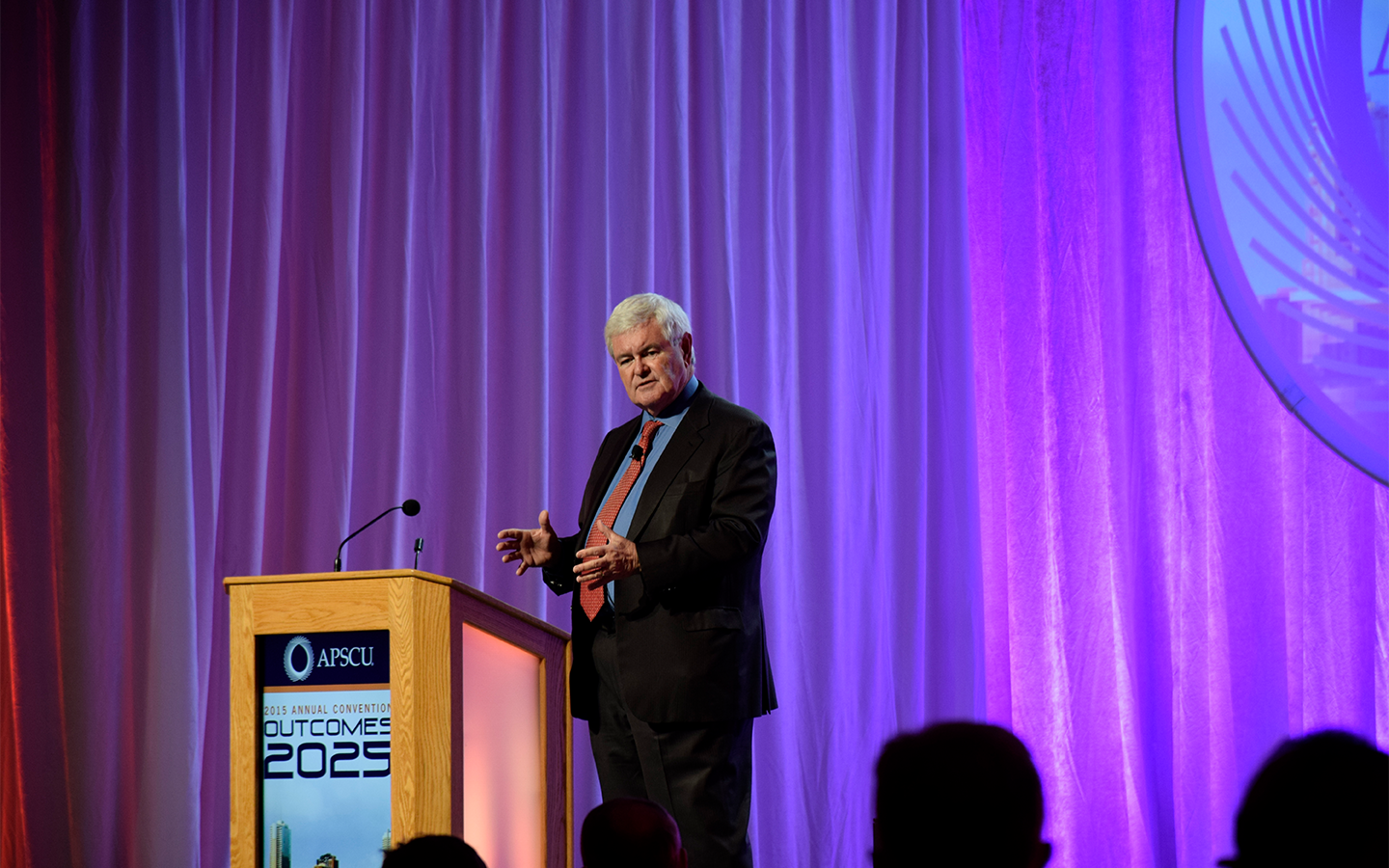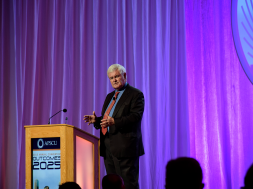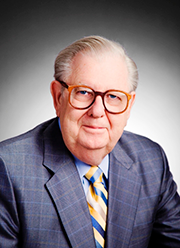
Leaders Assemble at CECU Annual CEO Summit to Discuss the Future of Career Education
By Stephen B. and Jan V. Friedheim, Strategic Coaches, Education Systems & Solutions, LLC
In November, approximately 65 CEOs from career education institutions around the country convened in Dallas, Texas along with association leaders and well-known political figures. Discussions focused on the results of the recent national election and what it means for the future of the sector.
The results of Nov. 9 felt like the world had shifted on its axis giving us a sense of relief that the terrible days of the Obama Department of Education could finally be coming to an end.
Not a moment too soon with hundreds of career education institutions closed and thousands of students out on the street, deeply in debt, and miles away from their intended career goals. What faced the sector before the election was a continuation of the apocalyptic drive under an Obama administration banner. But that was not to be; and now the sector can recreate itself with perhaps a more level playing field where all sectors would participate with matching operational requirements.
Discussion began with a panel made up of three knowledgeable lawyers with a history of working with and understanding our sector: Chris Murray, Thompson Coburn; Kate Carey, Cooley LLP; and Dennis Cariello, Hogan, Marren, Babbo & Rose, Ltd.
Together they shared election results that impact the career education sector. For example, they predicted that:
- Most of President Obama’s higher education agenda will be rewritten or discarded.
- Regulations related to Borrower Defense to Repayment and Gainful Employment will stay on the books for some time but will be modified slowly.
- Rewriting the Higher Education Act is high on the list of actively pursued requirements and that’s where both Borrower Defense and Gainful Employment can be modified and applied across the board to all sectors of higher education.
Attendees were encouraged to file an appeal to the Gainful Employment figures provided by the Department.
Also, to file a notice of intent on earnings appeal. By doing so, schools buy some time to affect the needed changes.
As has been the case with previous administrations, the newly appointed Secretary and consultants will be running the show early on. General Counsel may not be appointed until May or June.
It wasn’t known at this point that President-elect Trump would select Betty DeVos as his choice for Secretary. Knowing what she’ll do and where her priorities would be is complicated by the fact that she has not been actively engaged in issues related to higher education. Her focus in Michigan has been on charter schools at the elementary and secondary level. One positive aspect of this interest bodes well, however, since many of these schools are operated as for-profits. She understands private education and is comfortable with it.
Career Education Colleges and Universities (CECU) President, Steve Gunderson spoke of some of the broader problems with the Gainful Employment process, such as the differences in wages and by types of programs at various academic levels and in various regions of the country. This must be fixed but don’t expect any kindness from the Department before Jan. 20, 2017, he reported. “We have to recognize that this is the environment we live in; there’s really nothing we can do now.”
Both the House and Senate are prepared to go forward on preparing a new version of the Higher Education Act. Gunderson said that CECU is forming a special task force to develop the issues which should be address in that Act. He invited all CECU members to sign on to help on this.
All participants seemed to agree that 2017 represented an opportunity to reset the agenda, to reintroduce ourselves.
They were united in thinking that we must have a stronger CECU as our voice on the Hill. We must encourage membership. Many schools that dropped out should be invited back; to become full partners in support of the sector.
CECU has a golden opportunity to lead our sector and represent our students. The message and the mindset of “free us of regulations,” plays into the hand of the current regulators and won’t fly. Consider the moral certainly about our results of what we make for students, how it benefits the workforce. Do not recycle the old message. Use data on how we benefit students.
Looking back, what led to where we are? Growing too fast; praying on the unemployed, etc., off the path. We must be open to accountability. Economic contribution is the basis for our new approach.
Steve Gunderson noted that, “In looking at our sector today and what’s changed we note that 859 campus have closed in the past four years; 45 percent of our students are black and Hispanic; we’ve had a decline of 1.2 M students attending our schools.
We need to commit to student growth and job opportunity. CECU is launching a campaign to create 5 million career professionals over the next decade.
These will be in careers such as nursing, allied health, the trades, manufacturing, technology, and other industries that are an essential part of the future-proofing required to give all Americans a chance to succeed.”
Congressman Pete Sessions (R–Texas) of Dallas was on the program to tell his story. Sessions went to Bell Labs to get the training needed to enter the digital age, which gave him the perspective on why career education works. He said, “We need you; we need a competitive marketplace. The public demands more and a better education system. One that serves all. I have two sons: one is in the top 2 percent of his class and the other, who suffers from Down Syndrome, is in the bottom 2 percent; they both need to be taken care of. You and your education system make a difference. You make a difference!”
Congressman Sessions was followed by the keynoter, former Speaker of the House, Newt Gingrich, who has joined the CECU team to address our country’s needs and interface with members of Congress in designing the ways to best support the new president’s goals. Speaker Gingrich was clear in his review of the election results, “Hillary was beaten by change. The public demands it and what you are doing is very important. You are fortunate to have Steve Gunderson at the helm. He was a very effective Member of Congress because he knows how to communicate. When he was in the House, he hosted meetings of moderates and conservatives to form the coalitions needed to develop and pass effective legislation. You have a golden opportunity to gain the recognition you deserve. You and your members need to get up and tell the story of how you are educating your students to become productive citizens.”
His advice was to, “Communicate how to make America great again; show that you must have effective learning to compete. Jobs are changing. You are part of the bridge to help people get not just a first job but a lifetime career. Second: Narrowly you must explain what you do. It’s about students. A person/student must tell the story. Tell how career education changed my life. Students can say this better; they remember why they chose career education. Student and Alumni must tell the story.
When asked what role, he would be expected to play in the new administration, he said, “I will be a Senior Strategic Planner. We now have the strongest party, more governors; control the Senate and the House.
I will be helping in the selection of the members of the Cabinet. I expect that Senator Lamar Alexander and Congresswoman Virginia Fox will fix the policies.
We must pass Civil Service reform. Not being able to replace ineffective public employees is ridiculous. Of course, I know that the Unions will fight this. We must fix the Department of Veterans Affairs. We have had veterans die because the VA didn’t respond to the challenges effectively. Frankly, the whole federal government needs our attention. Trump could be the boldest change agent today. More so than Reagan.”
“Trump’s entire presidency will be marked by the economic growth and a remarkable number of people must be educated. For his plan to work; we must create the jobs; we must educate people; and help kids get into the middle class. Career education gives people the bridge to get out of poverty. That’s why you are important.”
The Speaker continued by noting that, “The weeks and months ahead will not be easy. The opposition will not go away! You should know that Gunderson has put together a team to represent you on the Hill. They will be telling the Members why you are important and why you are needed to “Make America Great Again.”
“Your message has to resonate with and throughout the African-American community where millions of them have lost hope. You must advocate for new policies for new opportunities and jobs. You need to be a ladder for a sense of hope. Work through pastors and community leaders to promote the American dream.”
“All of you are running small businesses. You need to help the Congress by describing all the dumb things that government is doing. You can do this by identifying the dumb reports and activities you must do. We need a million entrepreneurs. Develop the steps to get to a million entrepreneurs. The Congress will be very interested in how to get three or four times as many entrepreneurs as we have today. We’ve seen that small business have been in a death spiral, where more small business closed than opened. This is particularly tragic because small business creates the jobs. Give Congress a list of problems of small business. This is how we help Hispanics and Blacks get the bridge to prosperity. You need to talk more about the community and less about you.”
“Then you need an educational plan that is real-time focused- skill- training. We must find ways to break out of the traditional four- year model. We need to create robust education and a training model to help people learn rapidly to get a job. It is time for the rise of self-centered academic.”
“Read the book by Charles Murray, “Coming Apart.” He has ideas you can use. For the first time, there are elite folks with real power. Harvard grad marries a Harvard grad and sends son to Harvard. These communities talk with each other. They don’t mingle. None of them has never seen “The Apprentice,” they didn’t understand Trump. It’s weird. They don’t understand that you are a learning system. Expect academics to sneer but you represent a populous breakthrough. You represent the moralist way to break through.”
Steve Gunderson responded by saying,
“This then is our challenge: it is our role to lift up those who have been left behind. We must have a positive vision of what you want to do; figure out the steps to get there.
If we eliminate those programs no longer viable for today’s careers, what does it look like? We are comfortable with this system. What is the system we’ll need to create 5 million career professionals in the next decade? To what extent would you be better off if some of these career programs were short, focused and not funded through reliance on the government’s title IV programs?”
“Let’s explore ways to charge for and pay tuition differently, perhaps by paying weekly or monthly. Micro policy – how am I going to go to school? Get students to think about what they really expect from their training. These are some of the changes needed to train today’s students.”
“To achieve our goals, we must communicate with our alumni. Ask them what they think about their training at your school. Did it prepare as well as it should or were there things missing? We must expand our outreach to include military leaders, those with disabilities, and those coming out of prison. We must re-engage our students to learn a skill. We must design our support system to encourage folks to get off welfare. They are convinced that they can make more money on welfare, with public housing, food stamps, and child care. That’s why they choose to stay in the system. We must help them rethink the success proposition. Programs that make losers will not work. We must design a program that leads to a win. These people must have a bridge from poverty to prosperity. We can do it.”
Take-aways from the meeting include:
- We have an incredible opportunity. We must use it wisely!
- Students and alumni must be our spokespeople.
- We must reintroduce our sector to policymakers, the media, employers, and students.
- Our strategies must be well defined – not just as repealing the administration’s attack – but in establishing our essential role in building real economic growth and opportunity for all.
- Just as Republicans can’t repeal “Obamacare” unless they replace it with a solid health care policy; we can’t just repeal the Gainful Employment and Borrower Defense regulations without some modification.
- We must identify a common set of outcome metrics that replace the GE rule as applied to all higher education and commit to leadership in achieving these goals.
- We must make clear that we are totally committed to Borrower Defense to Repayment in cases of academic fraud. This can and should be handled legislatively in ways that are clear and fair to both students and schools.
- We will advocate for restoring Year-Round Pell as an effective tool for efficient, accelerated postsecondary career education.
- Just as the FDIC has in place a protocol to protect a bank’s customers when a bank is in financial trouble, we should establish a similar Receivership Tool to equip the operations in ways that protects students, faculty, the community, and the employers’ dependent on the school’s graduates. In doing so, we will dramatically reduce the taxpayer costs in Defense to Repayment.
- CECU should embrace an appropriate level of self-regulation in ways that lift the quality and reputation of the entire sector, while reducing the political pressure for new government regulation.
- Our sector must recognize that when outcomes define us, we cannot practice totally open enrollment that results in too many drop-outs with debt and no degree. Every school needs appropriate tools to determine a student’s ability to complete their studies before admission.
- Immediately, our sector needs to embrace short-term programs to equip those left behind in our economy with occupational skills for real jobs with real wages. In most cases these will be 2-year or less programs; often certificate and diploma awards.
- Our sector must be the leaders in connecting our education to occupational credentials.
- Our sector must identify ways to ensure that we are always on the cusp of emerging skill demands, and through innovation and technology we are recognized as the premier deliverer of the current and always changing demand for specific occupational skills.
- As the Trump administration seeks to rebuild the nation’s economy and workforce, while reducing the size of the federal government, we should explore new options for the delivery of financial aid in ways that ensures access based on financial need while reducing the size of the Department and the federal bureaucracy.
- We must use the next two years to build a bipartisan infrastructure of political support for our sector so that we never again must endure the attacks and negative results of the past eight years. We must establish a strong, sustainable level of support with Democrats.
- We must re-establish relations with the Department of Education and specifically the new appointees of the Trump administration.
- We must restore the appropriate roles of the Triad, and prevent the politicization of accreditation. We must work with the accrediting community to lift program quality and program improvement.
- We must, over time, diversity our sector – students, staff and leaders – in ways that reflect the changing diversity of America.
- We should lead the conversations regarding transfer credits, in ways that will work to best serve our students in both achieving academic awards; and in continuing their education towards higher degrees.
- We must grow, but we must be disciplined so that growth at all levels where we can continue to achieve outcomes in retention, graduation, placement, and repayment.
- And lastly, we must begin using our full name – Career Education Colleges and Universities, not CECU, which is not meaningful. It’s Career Education Colleges and Universities that can make America Great Again!
The participants left the meeting having recognized that these were all lofty goals, but with the proper leadership and membership participation, they can – and must – be achieved.
STEPHEN B. FRIEDHEIM, former president of the Association of Independent Colleges and Schools, and first chair of the Career College Association (Now CECU: Career Education Colleges and Universities), as well as former president of ESS College of Business in Dallas, provides consulting services with his wife, Jan, from Education Systems and Services in Dallas for the past 11 years.
They specialize on issues and opportunities related to accreditation, compliance, curriculum, in-service training, public relations, and strategic planning. Together they have given numerous presentations related to private career school operations and career services. As two of the best-known people in the field, they have had years of experience helping solve problems.
Contact Information: Stephen B. Friedheim // Strategic Coach // Education Systems & Solutions // 214-827-5403 or 214-587-5403 (cell) // sfriedheim@yahoo.com // www.essonline.biz
JAN V. FRIEDHEIM founded and operated the ESS College of Business, formerly the Executive Secretarial School, from 1960-2001. The school was initially accredited as a business school and later as a junior college of business. It was one of a few to offer housing to out-of state students, and unique in that it had a foreign study program that allowed students to study for six weeks at the Oxford Country School for Secretaries, England.
Since September 2001, she and her husband Stephen Friedheim have been partners at Education Systems & Solutions in Dallas. Their consulting company assists career schools with planning, accreditation, curriculum development, personnel training and more.
National and state achievement include: Founder and co-chairwoman on the National Task Force on the Image of the Secretary; Chairwoman of the CCST Task Force of the Texas Higher Education Coordinating Board, 1998-2006; Active in the CCA now CECU, serving as a member of the board of directors (1999-2001); membership services (1995-2001); convention committee (1999-2000); awards committee (1997-2001); and first female chairwoman of the Board of Directors and first female chairwoman of the Accrediting Council for Independent Colleges and Schools (ACICS); Lifetime achievement award (2014).
Contact Information: Jan V. Friedheim // Strategic Coach // Education Systems & Solutions // 214-827-5403 // janfriedheim@yahoo.com // www.essonline.biz











